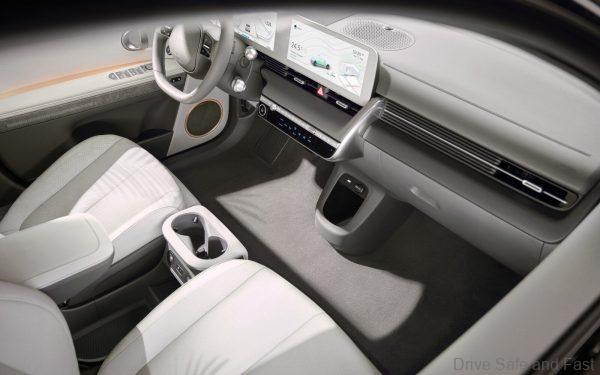Here comes another car manufacturer with chip supply problems.
In the past few months’ numerous car manufacturers around the world, from North America to Korea have had to suspend production due to technology parts shortages, namely computer chips.
Now comes news that South Korea’s Hyundai Motor Co announced yesterday, Tuesday that it plans to temporarily suspend production at its Ulsan No.1 plant in South Korea due to chip and component supply issues from April 7-14. This plant is located some 414 kilometers south of the city of Seoul and its is where the latest and most existing Hyundai models are being produced right now.

“We are closely monitoring the situation to take prompt and necessary measures and optimize production in line with the supply conditions,” Hyundai said in a statement.
The South Korean automaker said in a statement that the supply issues involve front view camera systems for Kona sport utility vehicle (SUV) and power electric modules for the IONIQ 5.

The Ulsan factory produces 311,000 vehicles annually, including the Kona SUV and IONIQ 5. This factory ‘forced holiday’ will see a shortfall supply of 6,000 units of the new Kona crossover and 6,500 units of the much acclaimed IONIQ 5 electric vehicle.

Hyundai was until recently one of the automakers least affected by the chip shortage, largely because it maintained a large stockpile of chips unlike its global peers, Reuters reported last month.
Last week, Honda Motor Co Ltd and General Motors Co both announced that they would continue production suspensions at plants in North America for the coming weeks, citing the chip shortage as one of several reasons.

In January this year, Audi AG was forced to suspends its factory operations due to semiconductor shortages and this led them to produce 10,000 less car this quarter. Even the German economic Minister, Peter Altmaier to speak to his Taiwanese counterpart Wang Mei-hua to address the issue in talks with a chip manufacturer, Taiwan Semiconductor Manufacturing Co Ltd (TSMC), which happens to be the world’s largest contract chipmaker and one of Germany’s main suppliers.
Then in February this year Mazda was faced with the same chip shortages and this affected the production of 34,000 units of their popular SUV’s, the CX-5 and CX-30.
A confluence of factors including factory shutdowns, booming demand for laptops and tablets, and sanctions against Chinese tech companies caused the shortage of chips in December.
Originally concentrated in the auto industry, the shortage has widened to affect a range of consumer electronics, including smartphones.